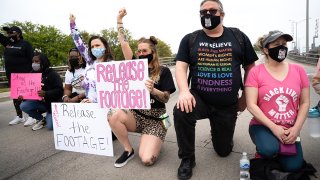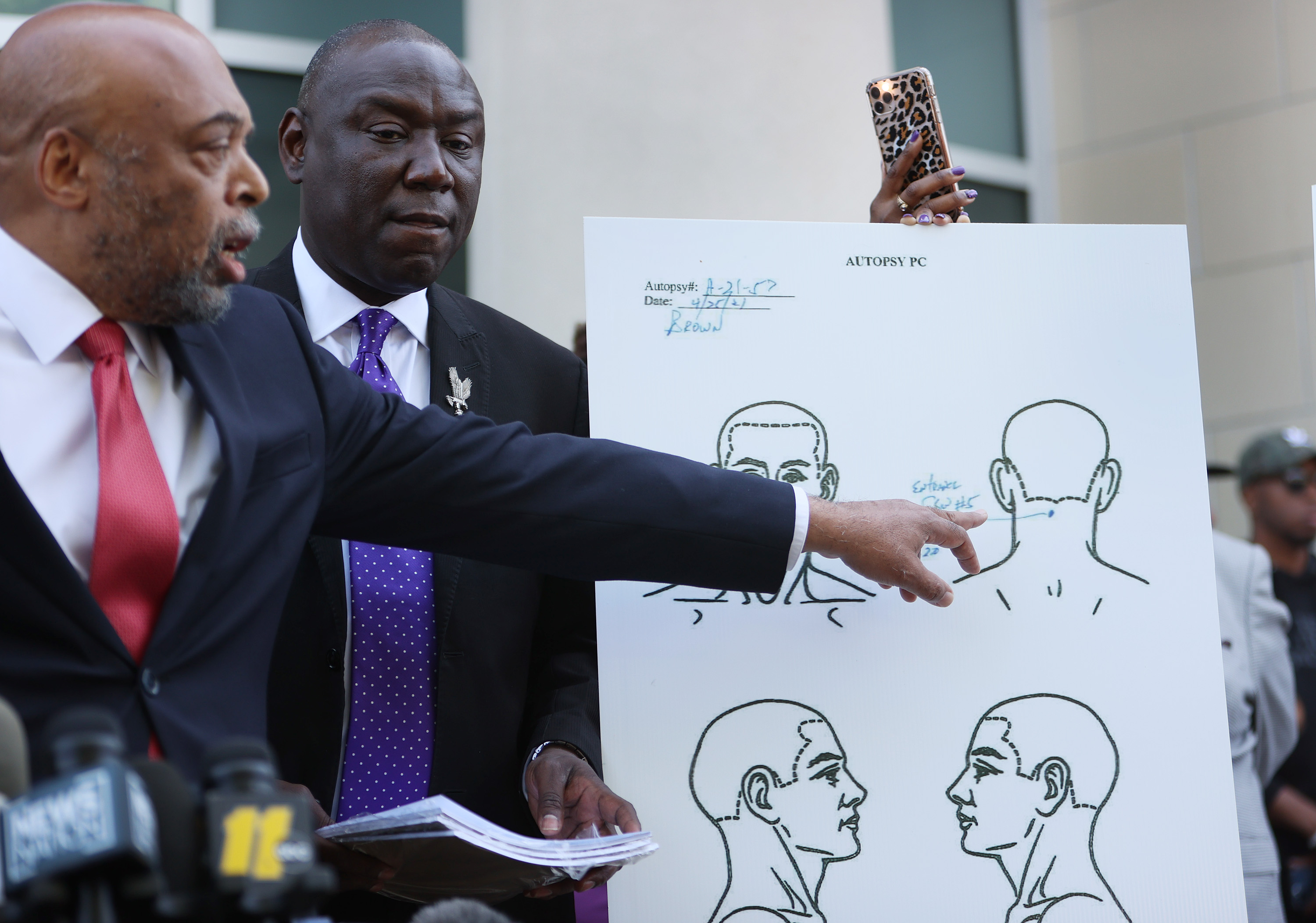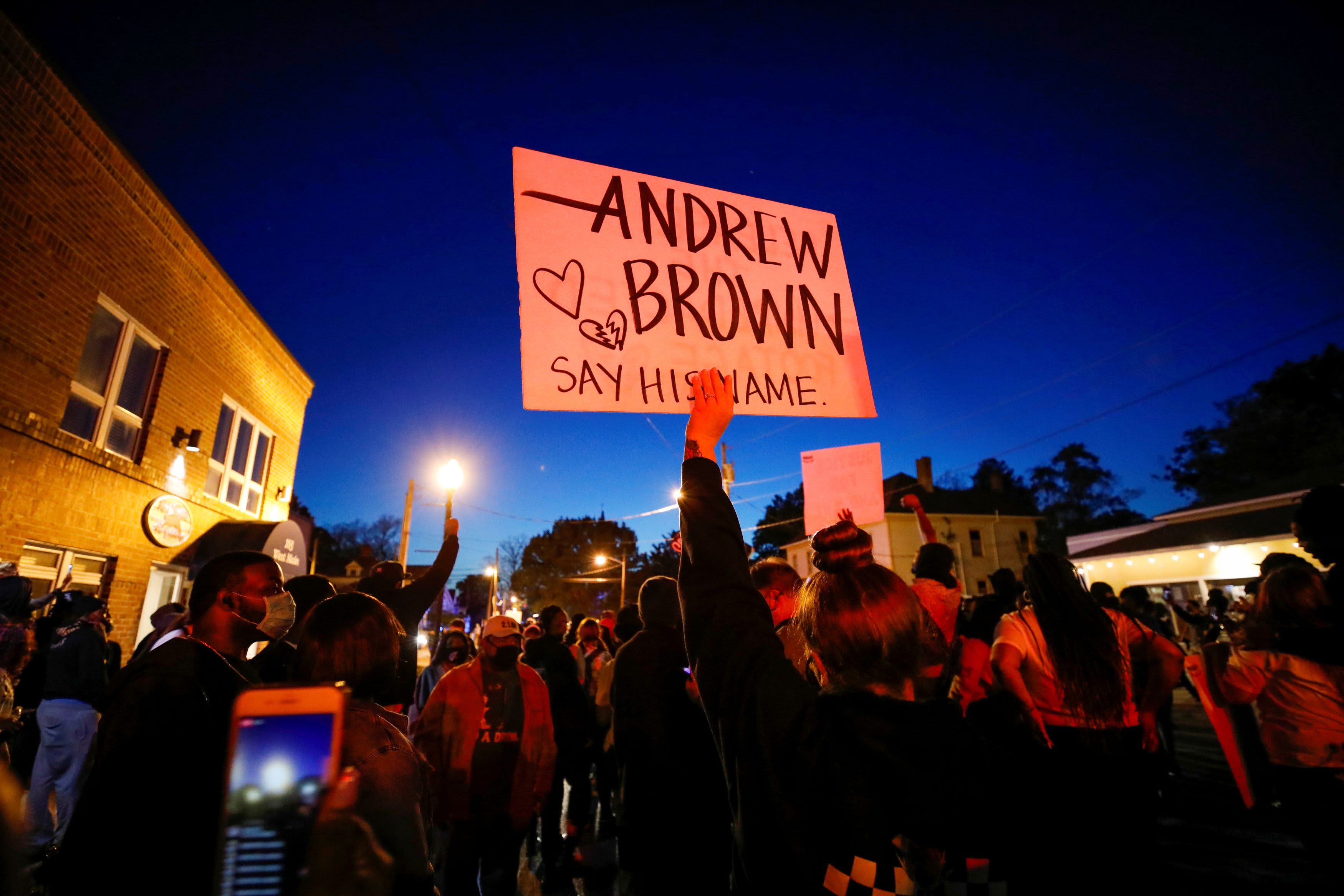
A funeral will be held next Monday for Andrew Brown Jr., a Black man shot and killed by North Carolina deputies, with the Rev. Al Sharpton delivering the eulogy.
Lawyers for Brown’s family said that the funeral will take place at noon on Monday in Elizabeth City. Other details of the arrangements were still being settled. Brown was shot and killed last week by Pasquotank County deputies serving drug-related search and arrest warrants.
Brown’s family asked Sharpton to deliver the eulogy because they felt the civil rights leader would properly honor his legacy, said Lee Ferebee, the uncle of Brown’s son Khalil Ferebee.
“We had a really good conversation about giving Andrew the kind of sendoff that we felt like he was worthy of,” Ferebee said in a phone interview. “So, Rev. Sharpton, we reached out to him, and we confirmed that he’s going to be performing the eulogy for us.”
Get San Diego local news, weather forecasts, sports and lifestyle stories to your inbox. Sign up for NBC San Diego newsletters.
The civil rights leader delivered the eulogy last week for Daunte Wright, who was shot and killed by a police officer in Minnesota.
Sharpton told The Associated Press in a phone interview that he agreed to the family’s request and spoke to Khalil Ferebee by phone Monday night. He said he’s also working with local clergy and North Carolina civil rights leaders including the Rev. William Barber II, the leader of the Poor People’s Campaign to draw attention to racial injustice.
“The family ought to know that the value of his life is being saluted around the world,” Sharpton said.
Sharpton said that he wants to both celebrate Brown’s life and help call attention to larger problems with policing that need to be addressed.
“I would want to get across that this is a human being. And for us, it’s part of a continual abuse of police power,” he said.
A judge refused Wednesday to release the body camera video showing North Carolina deputies shooting and killing Brown, ruling that making the video public at this stage could jeopardize the investigation into Andrew Brown Jr.'s death.
However, the judge did order authorities to allow Brown's family to privately view five videos from body cameras and one from a dashboard camera within 10 days, with some portions blurred or redacted. Family members had previously been allowed to view only a 20-second clip from a single body camera.
Judge Jeffery Foster said he believed the videos contained information that could harm the ongoing investigation or threaten the safety of people seen in the footage. He said the video must remain out of public view for at least 30 days.
“The release at this time would create a serious threat to the fair, impartial and orderly administration of justice,” Foster said.
While one attorney for Brown’s family, Wayne Kendall, initially said it was a “partial victory” for the family to view more video, the legal team later issued a statement condemning the decision not to make the video public.
“In this modern civil rights crisis where we see Black people killed by the police everywhere we look, video evidence is the key to discerning the truth and getting well-deserved justice for victims of senseless murders,” said the statement signed by the legal team, including Ben Crump and Harry Daniels.
The decision came shortly after a North Carolina prosecutor said that Brown had hit law enforcement officers with his car before they opened fire last week.
District Attorney Andrew Womble, who viewed the body camera videos, told the judge that he disagreed with a characterization by an attorney for Brown's family that Brown did not try to drive away until deputies opened fire. Womble said the video shows that Brown’s car made “contact” with law enforcement twice before shots could be heard on the video.
“As it backs up, it does make contact with law enforcement officers,” he said, adding that the car stops again. “The next movement of the car is forward. It is in the direction of law enforcement and makes contact with law enforcement. It is then and only then that you hear shots.”
Womble said that officers shouted commands and tried to open a car door before any shots were fired.
None of the deputies were injured, according to previous statements by the Pasquotank County sheriff, Tommy Wooten II.
Womble argued that the video from the shooting should be kept from the public so that state investigators can make progress on their probe of the shooting.
One of the Brown family lawyers, Chantel Cherry-Lassiter, who viewed the 20-second video, said Monday that shots were heard from the instant the clip started with Brown’s car in his driveway and his hands on the steering wheel. She said he did not try to back away until after deputies ran up to his car and began shooting, and he did not pose a threat to deputies, explaining: “He finally decides to try to get away and he backs out, not toward officers at all.”
In response to Womble’s remarks in court, she defended her description of the footage.
“At no time have I given any misrepresentations. I still stand by what I saw in that clip,” she said, adding that she watched the clip ”over and over,” taking notes.
The judge denied formal requests by a media coalition including The Associated Press and by the sheriff to release the video. Under a 2016 state law, authorities can show body camera video privately to family members of a victim but must receive a judge's approval to make it public.
“Accountability is important,” said Mike Tadych, a lawyer for the media coalition. “But in order to hold public officials accountable, we have to see what’s going on."
The FBI on Tuesday announced a civil rights investigation into Brown's death, and Democratic Gov. Roy Cooper, who has also called for a swift release of the video, urged that a special prosecutor be appointed to take the state's case over from Womble. However, under state law, the district attorney would have to agree to let another prosecutor step in. Womble indicated in a statement Tuesday that he will not do so.
The State Bureau of Investigation began a probe of the shooting shortly after it happened. It has said that it would turn its findings over to Womble, as is standard under state laws and procedures.
Brown was shot April 21 by deputies serving drug-related search and arrest warrants at his house in the North Carolina town of Elizabeth City, about 160 miles northeast of Raleigh. On Tuesday, Brown’s family released an independent autopsy showing he was shot five times, including in the back of the head. The state’s autopsy has not been released yet.



